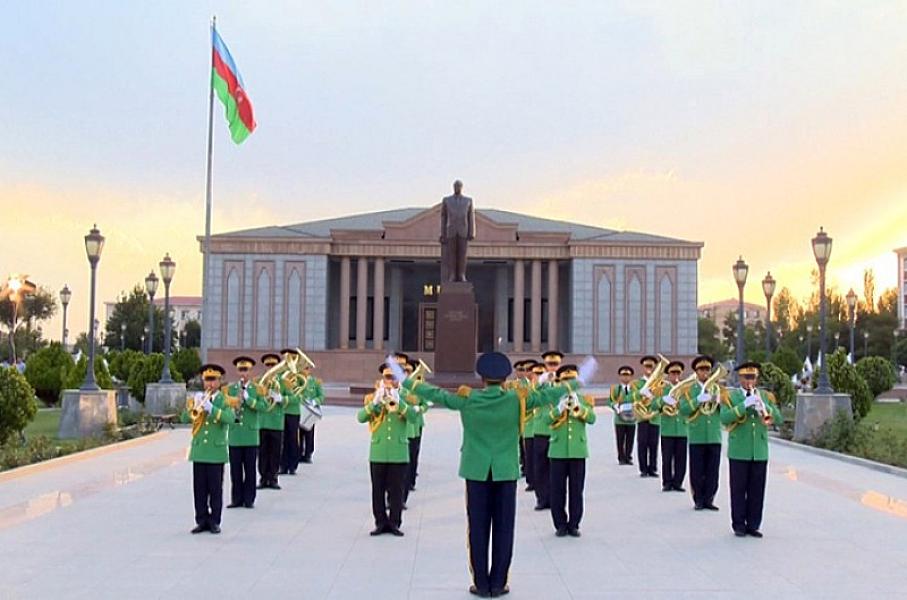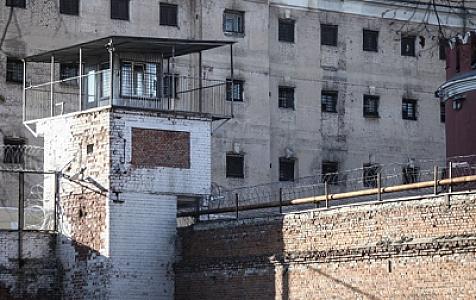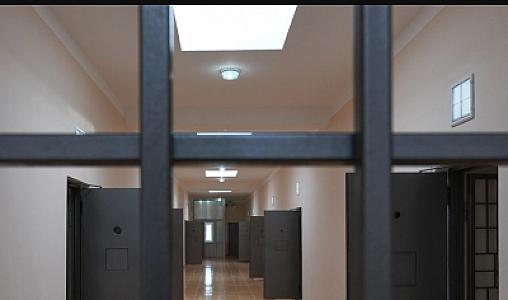On February 19, 2019, the law "On the Rules of Using the State Anthem of the Republic of Azerbaijan" came into force, and on April 15, the Head of State Ilham Aliyev signed a decree on the implementation of the law, instructing the Cabinet of Ministers to prepare and submit to the President within five months proposals for harmonizing the country’s laws and presidential acts with the "On the Rules of Using the State Anthem" law, as well as a draft legislative act defining the types of liability for violations of the "On the Rules of Using the State Anthem" law.
More than 6 years have passed since, yet the task has not been fulfilled.
Article 9 of the "On the Rules of Using the State Anthem" law states that persons violating the requirements of this law bear responsibility according to the Civil Code, the Code of Administrative Offences, and the Criminal Code. However, it is unclear what responsibility they bear because the relevant codes have not yet been amended accordingly. In accordance with the President's April 15, 2019 decree, amendments should have been made to the Civil Code, the Code of Administrative Offences, and the Criminal Code, and the punishments for violating the requirements of the legislation on the State Anthem should have been established. However, since the President’s directive has not been implemented, the types of liability for violations of the "On the Rules of Using the State Anthem" law have not yet been determined.
According to Article 23 of the Constitution, the State Flag, State Emblem, and State Anthem are the symbols of the Azerbaijani state. According to Article 75, every citizen must respect the state symbols of the Republic of Azerbaijan—the flag, emblem, and anthem—and displaying disrespect towards state symbols is subject to responsibility as prescribed by law.
According to Article 324 of the Criminal Code, insulting acts related to the State Flag or State Emblem are punishable by restriction of liberty for up to 2 years or imprisonment for up to 1 year. However, there is nothing in the Criminal Code or other codes about punishments for insulting acts regarding the State Anthem. Essentially, this means that disrespect towards the State Anthem remains legally unpunished.
How can the fact that the President's directive regarding the State Anthem has not been implemented for more than 6 years be explained? Why are liability types for violations of the legislation concerning the State Anthem not determined?

Talking to Medianews.az, the head of the Constitutional Research Foundation, legal expert Alimammad Nuriyev said that state symbols—the flag, emblem, and anthem—are not merely aesthetic symbols but the highest expressions of state ideology and national identity: "Their protection and use with respect and reverence is morally, politically, and legally necessary."
According to the legal expert, the failure to execute the President's decree of April 15, 2019, on the implementation of the "On the Rules of Using the State Anthem" law, including the absence of liability mechanisms for violations in codes and various laws, can be associated with several factors: "The first factor is weak executive discipline. The Cabinet of Ministers has not submitted the intended draft, or if it has, it has not brought it up for discussion. The second factor could be the change in priorities. Since 2020, the agenda has been dominated by the Second Karabakh war and reconstruction in liberated territories. In other words, these issues have taken precedence. The determination of when disrespect towards the anthem leads to administrative or criminal liability has been postponed in institutional discussions. Since no cases of violation of the State Anthem rules have been recorded, the issue has not been topical."
Nuriyev noted that in many countries the state anthem is protected by a separate law: "For example, in Turkey, insulting the Independence March entails criminal liability. Similarly, in France, those who openly disrespect the state anthem are held criminally responsible. In Poland, both administrative and criminal liabilities apply. These examples show that the legal protection of the anthem is vital for the complete protection of state symbols."
The legal expert believes that because the Azerbaijani President’s decree has not been implemented, constitutional requirements have been violated: "The State Anthem has effectively been left outside legal protection. A legal asymmetry has arisen between the protection of the flag and emblem and the protection of the anthem. All of this is related to the non-implementation of the decree."
Nuriyev emphasized that a package of legislative amendments should first be prepared in the Milli Majlis (Parliament): "Fines for distortion of the State Anthem and violations of its proper use should be established in the Code of Administrative Offences. In the Criminal Code, the limits of criminal liability for open disrespect and insult to the anthem should be specified. The Cabinet of Ministers also bears responsibility for the delay in this matter. There should be political and institutional accountability mechanisms for the failure to execute the President’s decree on time."
Strengthening public awareness is also an important aspect. The protection of state symbols is not only a legal matter but also part of civic responsibility. Thus, there is a serious gap in the legal protection of Azerbaijan's State Anthem. The failure to execute the President’s 2019 directives not only contradicts the principles of a legal state but also undermines the integrity of the state symbols. The existence of liability mechanisms regarding the flag and emblem but not the anthem causes normative imbalance. It is necessary both legally and politically to eliminate this gap. Defining types of liability concerning the state anthem is very important for protecting Azerbaijan's state ideology, national identity, and principles of a legal state."
Nailə Qasımova,
Medianews.az







